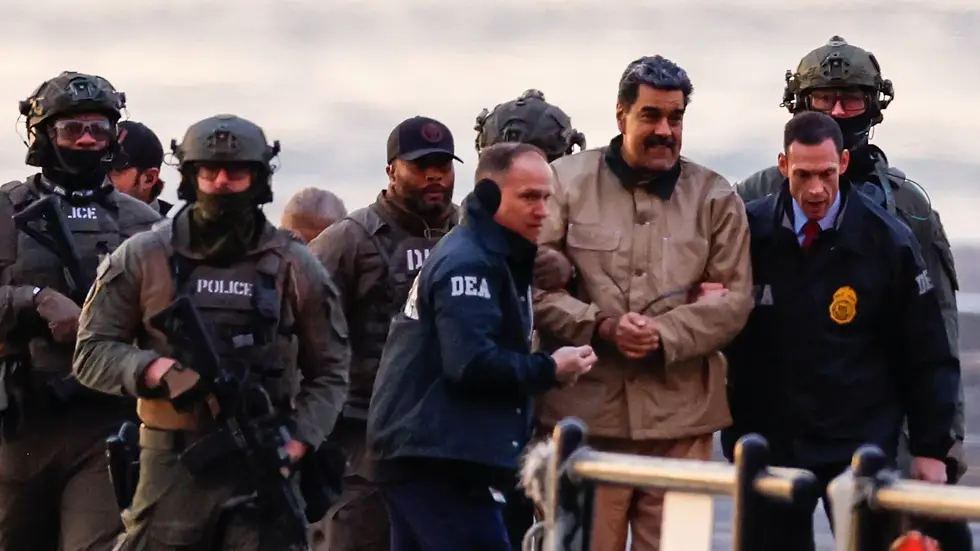Staving Off War: The Russia, Ukraine, and NATO Stand-Off
- mcoswalt
- Jan 1, 2022
- 4 min read
—
The long-simmering conflict between Ukraine and Russia now threatens to become open war. Russian military forces reportedly have been gathering close to the Russia-Ukraine border this fall. U.S. government sources recently suggested Russia might be preparing to attack Ukraine.
War between Ukraine and Russia would be a devastating tragedy for both nations. Yet efforts by the United States and NATO to protect Ukraine could easily ratchet up east-west tensions further — and even provoke the war they are meant to prevent. Diplomacy to ease tensions and avoid armed conflict is urgently needed.
The current conflict arose in 2014 when an uprising in Ukraine overthrew the pro-Russian president. Russia responded by invading and occupying Ukraine’s Crimea region. Also in 2014, armed separatists in eastern Ukraine began, with Russian support, a struggle against the central government. The civil war in Ukraine continues to this day.
A 2015 ceasefire agreement required giving greater autonomy to the separatist regions while securing the central government’s control, throughout the conflict zone, of the Ukraine-Russia border. However, this agreement has never been fully honored. To date, over 14,000 people have been killed in the conflict.
This fall, satellite photos and other analysis indicated that Russian troops and military equipment, including tanks, were moving closer to Ukraine. Then came U.S. warnings of a possible Russian attack. Meanwhile, Ukraine has been massing its own troops, a move which Ukrainian authorities have justified as defensive but Russian authorities warn might signal a new campaign against the separatists.
Whether Russia is actually preparing to invade Ukraine or is simply saber-rattling is ultimately known only to Russian President Vladimir Putin and his advisers. Understanding why Russia might be massing military forces close to Ukraine is easier to discern, though: the Russians have been very clear about their goals. Understanding these goals can help in understanding the current crisis and perhaps preventing war.
Russia wants to keep Ukraine from joining NATO — a path Ukraine has been contemplating since the 2000s. Putin raised the issue of Ukrainian NATO membership at a December meeting with Biden. Later in December, Russian authorities proposed an agreement with NATO in which NATO would pledge never to offer Ukraine membership.
Beyond NATO expansion, the Russians are generally concerned about western military activities close to them. As an official Russian statement commented, NATO “has been expanding its military potential near Russian borders.” The recent Russian proposal includes a request for NATO to scale back significantly its military presence in countries close to Russia.
Russian security concerns are understandable. Russia has no easily defensible western border: no mountains or seas separate Ukraine from Russia. Stopping an invasion from the west, through Ukraine, would be very difficult. If Ukraine joins an American-led western military alliance (NATO) and becomes a base for NATO military activities, Russia becomes extremely vulnerable to western attack. Russia has endured at least one such western attack every century for the past 400 years — the most recent, Nazi Germany’s 1941 invasion of the Soviet Union, cost millions of lives.
Modern military technology hasn’t made the situation any more reassuring for Russia. In November, Putin expressed concern about NATO possibly stationing (presumably nuclear-capable) missiles in Ukraine. Such missiles could reach Moscow in 5 minutes. “The emergence of such threats represents a ‘red line’ for us,” Putin has said. (Although stationing U.S. nuclear missiles in Ukraine is not an option currently being considered, the United States has given weapons and other military assistance to Ukraine.)
Russian policymakers have a strong incentive to prevent further western military expansion into Ukraine. Preventing such expansion could involve supporting separatists, to weaken Ukraine. It could involve invading Ukraine.
However, the guarantee Russia wants — no NATO membership for Ukraine — isn’t acceptable. While its concerns are understandable, Russia doesn’t have the right to threaten another country into submission. Further, the United States and NATO are not going to agree to Russian demands: U.S. and NATO officials have repeatedly affirmed Ukraine’s right to join NATO.
Yet Ukrainian NATO membership remains very dangerous. At best, pursuing such membership will cause Russia to respond with its own assertive military activities, dramatically worsening tensions in Europe. At worst, the prospect of Ukrainian NATO membership will provoke a Russian invasion — precisely the opposite of the security Ukraine seeks from NATO.
The current stand-off doesn’t have a clear solution. The best option for policymakers is some stop-gap agreement to buy time until (perhaps) better options become available. Such a possible diplomatic deal might include the following measures:
The United States, NATO, and Russia should seek a mutual reduction in western and Russian military activity in the region. The recent Russian suggestion of a ban on large-scale military exercises on either side of Russia’s western border is worth pursuing. This step would reduce the threat to Ukraine while also reassuring Russia.
The United States and NATO should slow the pace of any further military assistance to Ukraine and should defer consideration of Ukraine NATO membership for at least a few more years.
Ukraine and Russia should seek a new agreement on Ukraine’s civil war — with an eye toward dropping the previous requirement that the central government gives autonomy to the separatist regions. Such talks offer Ukraine some political compensation for delayed NATO membership.
All the nations involved, as well as non-governmental groups, should provide appropriate humanitarian assistance to those in the conflict-affected region of Ukraine.
Whether such a diplomatic deal would succeed is uncertain. Even if successful, it would fall short of a satisfactory resolution. Nevertheless, a deal along these lines would be preferable to war or to the continual escalation of international tensions. Diplomacy should be seriously attempted.



Comments